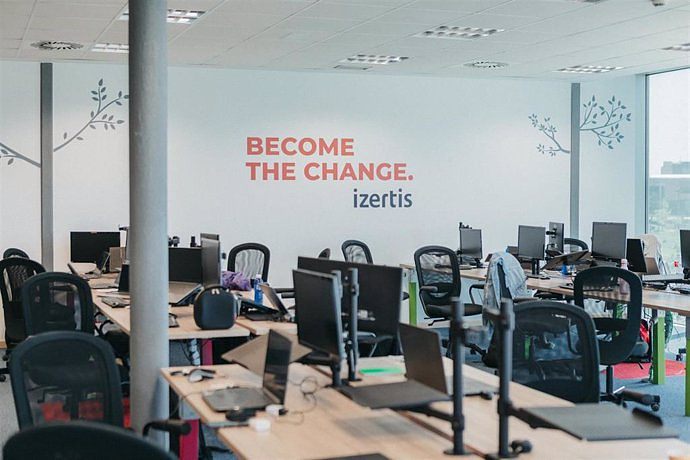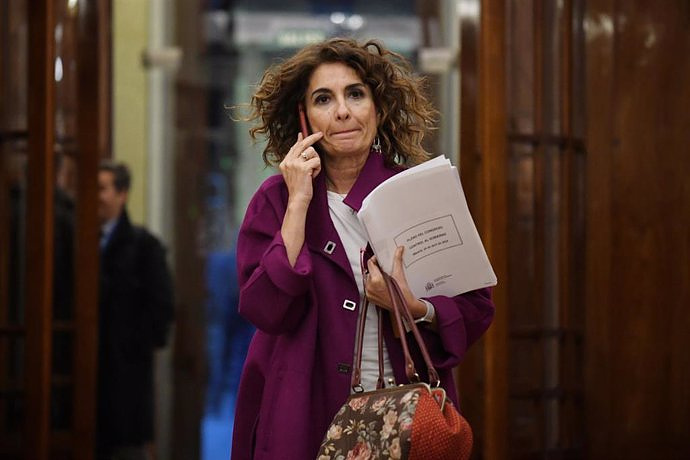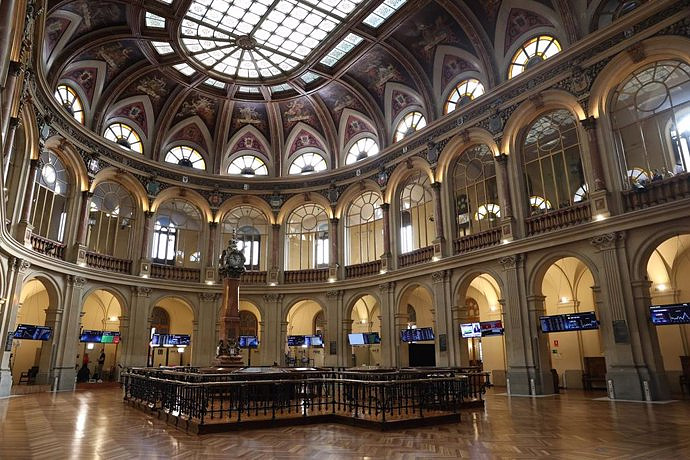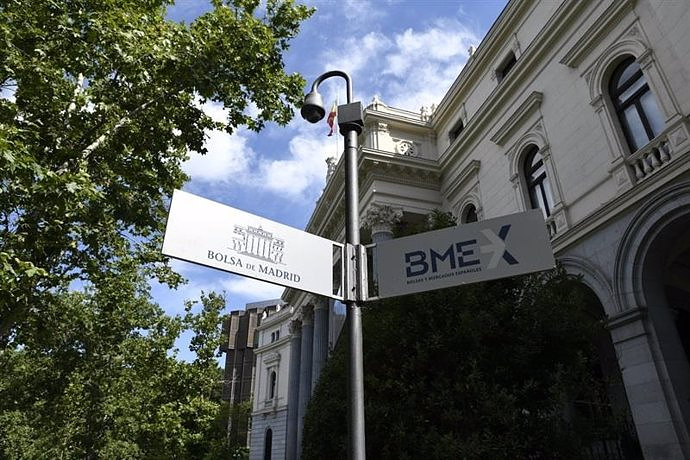It will be seen with the Government, opposition and judges
BRUSELAS, 25 Sep. (EUROPA PRESS) -
The European Commission has taken another step in its pressure to help unblock the renewal of the General Council of the Judiciary (CGPJ) with the trip that the Justice Commissioner, Didier Reynders, will make to Spain this week, with the aim of mediating between the Government and the Popular Party to get the negotiations off the ground.
With this objective in mind, the agenda that will take him to Madrid from Wednesday the 28th to Friday the 30th includes meetings with various members of the Pedro Sánchez Executive, including the Minister of Justice, Pilar Llop, and the Minister of the Presidency, Félix Bolaños; as well as with the president of the Supreme Court and the General Council of the Judiciary, Carlos Lesmes.
In addition, he will intervene in the mixed commission for the European Union in the Congress of Deputies on Thursday, he will meet with representatives of different associations of judges and will speak with the main groups of the parliamentary opposition, including PP and Ciudadanos.
The trip comes just two weeks after the vice president of the European Commission responsible for the rule of law, Vera Jourova, who was already in Madrid in June, endorsed Lesmes in a letter and warned that the "proper functioning of the institutions of the State" --as the governing body of the judges-- "must not form part of the political debate and even less be a hostage to that debate".
The renewal of the governing body of the judges has been a "priority" for years for Brussels, which also considers it urgent that "immediately after" the system for appointing the members of the CGPJ be reformed, so that they are elected mostly by the judges themselves, in line with European standards.
This is how it appears every year in the report with which the Community Executive evaluates the democratic health in the European Union and this has been said in public and in their direct contacts with the Government, opposition and associations of judges, both Reynders himself and the vice president of the Commission responsible for the rule of law, Vera Jourova.
Despite repeated calls for dialogue from Brussels, the lack of progress has led the community services to notify their concern in a specific "recommendation" within the annual report on Spain.
This will make it possible to evaluate next summer whether sufficient steps have been taken before deciding whether "other instruments" are necessary to promote improvements, according to Reynders a few days ago, when he also made it clear that in light of the 'impasse' he will try to mediate between the forces policies during his visit to Spain.
"We can also get involved in the dialogue, not only ask for a dialogue but try to bring them closer. We have already done it and I will try to do it on this visit," he assured last Tuesday in statements to various media, including Europa Press, in the margins from one meeting to 27 on the rule of law in the EU.
"We are trying to organize a dialogue between political forces because the change of the CGPJ needs majorities such that it requires collaboration between the main political forces," explained the commissioner, for whom it is as urgent that the new appointments "be launched" as that address "very quickly" the reform of the system.
In any case, in his calls for attention, Reynders tries to emphasize that the situation in Spain "is not at all" comparable to the situation in other Member States in which, as has happened with Poland, Brussels has initiated more severe procedures after note a "regression" in its democratic system.
Community sources consulted by Europa Press emphasize that in the eyes of the Community Executive there is no legal basis to act against Spain because there is no regression on existing legislation, as is the case with the Budapest and Warsaw reforms to interfere in the judicial system.
Nor do they contemplate that the situation affects the disbursement of recovery funds from the European Union for Spain, as the milestones and conditionality have already been negotiated.
Asked days before his trip about the consequences for Spain if the blockade persists, Reynders also ruled out the prospect of sanctioning processes such as that of article 7 that was activated against Hungary and Poland due to systemic risks in the rule of law. Only in the event that the situation "for years did not improve", said the Commissioner, the Community Executive "would have to think of other instruments" to put pressure on Spain.
In addition to this issue, the commissioner wants to discuss with the authorities the use of the 'Pegasus' espionage software, a program supposedly used to spy on independence leaders and the Prime Minister, Pedro Sánchez, and for whose use in different Member States it has been created a committee of inquiry in the European Parliament.
In the absence of closing his agenda that will take him to Madrid from Wednesday 28 to Friday 30, Reynders plans to meet with several members of the Government, including the Minister of Justice, Pilar Llop, and the Minister of the Presidency, Félix Bolaños, and with the president of the Supreme Court and the General Council of the Judiciary, Carlos Lesmes.
He has also scheduled meetings with several associations of judges, will speak in the mixed commission for the European Union in the Congress of Deputies on Thursday and will participate in an Informative Breakfast on Friday.

 Exploring Cardano: Inner Workings and Advantages of this Cryptocurrency
Exploring Cardano: Inner Workings and Advantages of this Cryptocurrency Seville.- Economy.- Innova.- STSA inaugurates its new painting and sealing hangar in San Pablo, for 18 million
Seville.- Economy.- Innova.- STSA inaugurates its new painting and sealing hangar in San Pablo, for 18 million Innova.- More than 300 volunteers join the Andalucía Compromiso Digital network in one month to facilitate access to ICT
Innova.- More than 300 volunteers join the Andalucía Compromiso Digital network in one month to facilitate access to ICT Innova.-AMP.- Ayesa acquires 51% of Sadiel, which will create new technological engineering products and expand markets
Innova.-AMP.- Ayesa acquires 51% of Sadiel, which will create new technological engineering products and expand markets Puigdemont believes that Sánchez can present a question of trust and "clarify all doubts"
Puigdemont believes that Sánchez can present a question of trust and "clarify all doubts" RELEASE: Automation Anywhere names Tim McDonough director of marketing
RELEASE: Automation Anywhere names Tim McDonough director of marketing RELEASE: Terra Drone, Unifly and Aloft launch UTM development for AAM aimed at global markets
RELEASE: Terra Drone, Unifly and Aloft launch UTM development for AAM aimed at global markets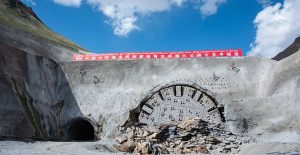 STATEMENT: The construction of the Gudauri tunnel in the Kvesheti-Kobi Highway Project of the North-Su Corridor has been successfully completed
STATEMENT: The construction of the Gudauri tunnel in the Kvesheti-Kobi Highway Project of the North-Su Corridor has been successfully completed How Blockchain in being used to shape the future
How Blockchain in being used to shape the future Not just BTC and ETH: Here Are Some More Interesting Coins Worth Focusing on
Not just BTC and ETH: Here Are Some More Interesting Coins Worth Focusing on Retrópolis brings the golden age of video games and computing to the UPV
Retrópolis brings the golden age of video games and computing to the UPV Looking for video games that value the neighborhoods of Valencia
Looking for video games that value the neighborhoods of Valencia UPV researchers improve the efficiency of air conditioning systems using a geothermal heat pump
UPV researchers improve the efficiency of air conditioning systems using a geothermal heat pump València is committed to citiverse and smart tourism to be "the reference technological hub of the Mediterranean"
València is committed to citiverse and smart tourism to be "the reference technological hub of the Mediterranean" A million people demonstrate in France against Macron's pension reform
A million people demonstrate in France against Macron's pension reform Russia launches several missiles against "critical infrastructure" in the city of Zaporizhia
Russia launches several missiles against "critical infrastructure" in the city of Zaporizhia A "procession" remembers the dead of the Calabria shipwreck as bodies continue to wash up on the shore
A "procession" remembers the dead of the Calabria shipwreck as bodies continue to wash up on the shore Prison sentences handed down for three prominent Hong Kong pro-democracy activists
Prison sentences handed down for three prominent Hong Kong pro-democracy activists ETH continues to leave trading platforms, Ethereum balance on exchanges lowest in 3 years
ETH continues to leave trading platforms, Ethereum balance on exchanges lowest in 3 years Investors invest $450 million in Consensys, Ethereum incubator now valued at $7 billion
Investors invest $450 million in Consensys, Ethereum incubator now valued at $7 billion Alchemy Integrates Ethereum L2 Product Starknet to Enhance Web3 Scalability at a Price 100x Lower Than L1 Fees
Alchemy Integrates Ethereum L2 Product Starknet to Enhance Web3 Scalability at a Price 100x Lower Than L1 Fees Mining Report: Bitcoin's Electricity Consumption Declines by 25% in Q1 2022
Mining Report: Bitcoin's Electricity Consumption Declines by 25% in Q1 2022 Oil-to-Bitcoin Mining Firm Crusoe Energy Systems Raised $505 Million
Oil-to-Bitcoin Mining Firm Crusoe Energy Systems Raised $505 Million Microbt reveals the latest Bitcoin mining rigs -- Machines produce up to 126 TH/s with custom 5nm chip design
Microbt reveals the latest Bitcoin mining rigs -- Machines produce up to 126 TH/s with custom 5nm chip design Bitcoin's Mining Difficulty Hits a Lifetime High, With More Than 90% of BTC Supply Issued
Bitcoin's Mining Difficulty Hits a Lifetime High, With More Than 90% of BTC Supply Issued The Biggest Movers are Near, EOS, and RUNE during Friday's Selloff
The Biggest Movers are Near, EOS, and RUNE during Friday's Selloff Global Markets Spooked by a Hawkish Fed and Covid, Stocks and Crypto Gain After Musk Buys Twitter
Global Markets Spooked by a Hawkish Fed and Covid, Stocks and Crypto Gain After Musk Buys Twitter Bitso to offset carbon emissions from the Trading Platform's ERC20, ETH, and BTC Transactions
Bitso to offset carbon emissions from the Trading Platform's ERC20, ETH, and BTC Transactions Draftkings Announces 2022 College Hoops NFT Selection for March Madness
Draftkings Announces 2022 College Hoops NFT Selection for March Madness

